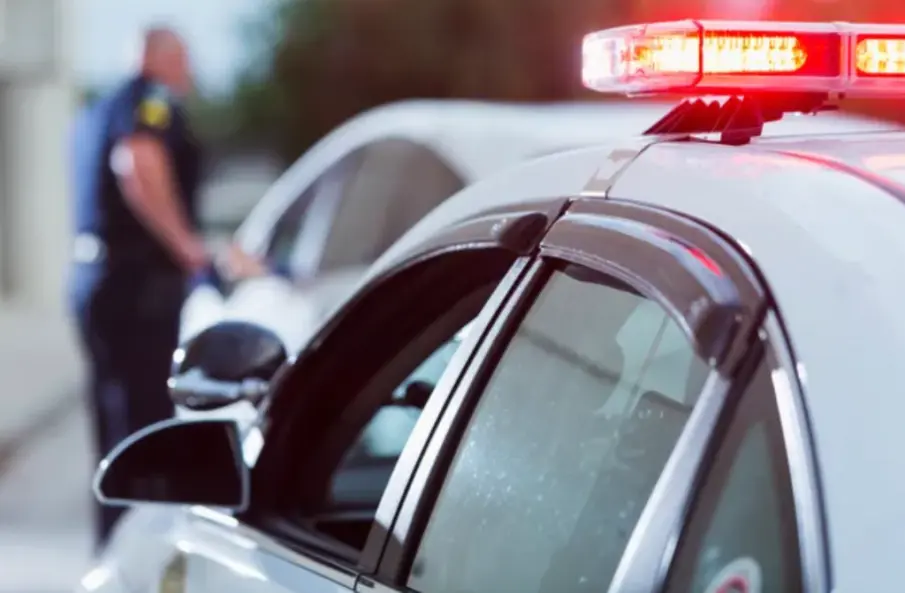Pulled over? Here's exactly what to do (and not do) when stopped for speeding

The flashing lights appear in your rearview mirror, and your stomach sinks. Maybe you were distracted, in a hurry, or just didn’t realize how fast you were going — whatever the reason, getting pulled over is always stressful. What you do and say in the next few minutes can heavily influence the outcome, from receiving a simple warning to facing a serious penalty.
What appears to be a routine traffic stop could potentially turn into a careless driving ontario charge with serious penalties, making it crucial to remain composed, cooperative, and mindful of how your behavior might be perceived
Let’s cut through the noise and give you a clear, step-by-step game plan.
How to act when stopped: stay calm, smart, and in control
1. Pull over safely (but not suspiciously)
Signal, check your blind spots, and move to the right shoulder or nearest safe spot.
Don’t slam the brakes or swerve suddenly—that looks sketchy.
Turn off the engine and roll down your window.
2. Hands visible, attitude neutral
Keep your hands on the wheel until the officer approaches.
No sudden movements (digging for your license before asked can seem risky).
Stay polite but not overly chatty. "Good morning, officer" works fine.
3. Provide what’s required — nothing more
You must show license, registration, and proof of insurance.
You don’t have to answer questions like, "Do you know how fast you were going?"
A simple, "I prefer not to discuss the details right now" keeps things civil.
4. Take notes (mentally or otherwise)
Record the officer’s name, badge number, and patrol car number.
Note the time, location, and any unusual details (weather, traffic conditions).
If the officer used radar, ask if it was calibrated recently.
Should I argue with the officer? Spoiler: no.
This isn’t the movies. Arguing roadside almost never helps.
- Cops have discretion — being combative guarantees a ticket. Staying respectful might mean a warning.
- Anything you say can (and will) be used against you—even casual comments like, "I was just keeping up with traffic."
- Save your defense for court — if the ticket is unfair, challenge it later.
One exception: if you genuinely believe the stop was unlawful (wrong car, mistaken identity), calmly state your case once. If the officer insists, comply and fight it afterward.
How traffic paralegal services help during the appeal stage
Let’s say you got the ticket anyway. Now what?
- Evidence review – Professionals scrutinize the officer’s notes, radar logs, and procedures for errors. Did the device have a valid calibration certificate? Was the speed measurement affected by other vehicles?
- Negotiation – Many cases get reduced to lesser offenses (e.g., "parking violation") with no demerit points. Traffic Paralegal Services know which prosecutors are open to deals.
- Trial strategy – If it goes to court, they can cross-examine the officer, challenge inconsistencies, and present technical defenses.
Fun fact: In Ontario, officers sometimes no-show court dates — which often means an automatic win for you.
The bigger picture: protect yourself beyond the stop
- Dash cams help – Footage can prove your speed, road conditions, or if the officer misidentified your car.
- Check for errors – Wrong date, time, or location on the ticket? That could get it tossed.
- Act fast – You typically have 15 days to request a trial in Ontario. Miss the deadline, and you’re stuck with the fine.
Final move: play the long game
Getting pulled over isn't the end of the world — it's just the first move in a chess match between you and the system. The real game begins after those flashing lights fade in your rearview mirror.
Smart drivers know this isn't about one traffic stop — it's about protecting your record, your insurance rates, and your driving privileges long-term. That careless driving Ontario charge you narrowly avoided today? Tomorrow it could be someone else's expensive lesson.
This is where patience pays off. Keep every document — the ticket, your notes, any correspondence. Track deadlines religiously (Ontario gives you 15 days to respond, but the clock starts ticking immediately). Watch for patterns — are certain stretches of road monitored more heavily? Does your daily commute tempt you to push the limit?
Consider investing in a radar detector (legal in most provinces) or driver-monitoring apps that alert you to speed traps. They're not about cheating the system — they're tools for staying aware, just like checking your mirrors.
If you do end up with a ticket, remember: fighting it isn't about stubbornness. It's about refusing to let a single moment define your driving future. Whether you go it alone or bring in Traffic Paralegal Services, the goal remains — play smart today so you're still winning tomorrow.
Because in the game of roads and rules, the best players think three moves ahead. Your next move? Drive like someone who knows how the system really works.
More to Read:
Previous Posts:





